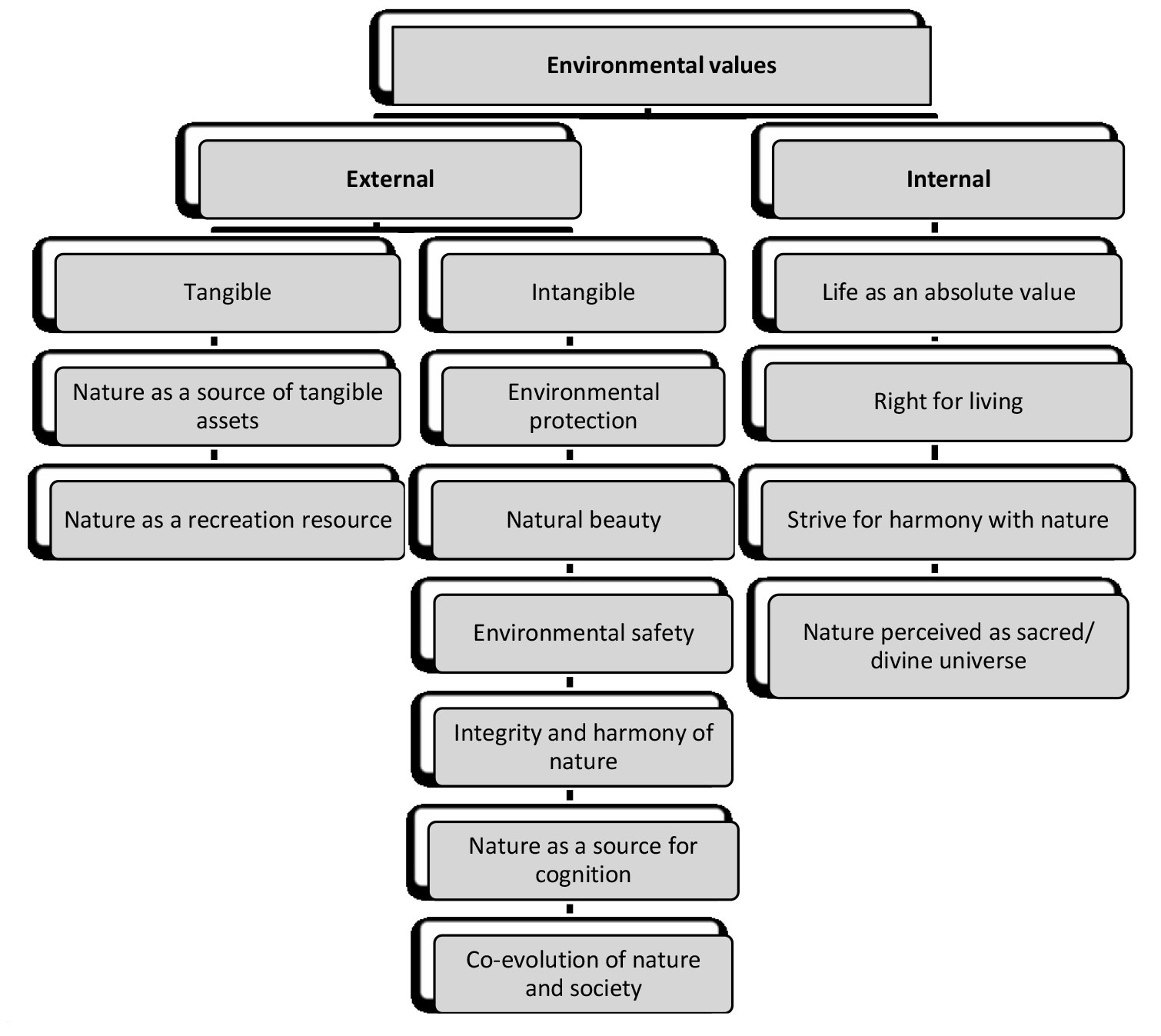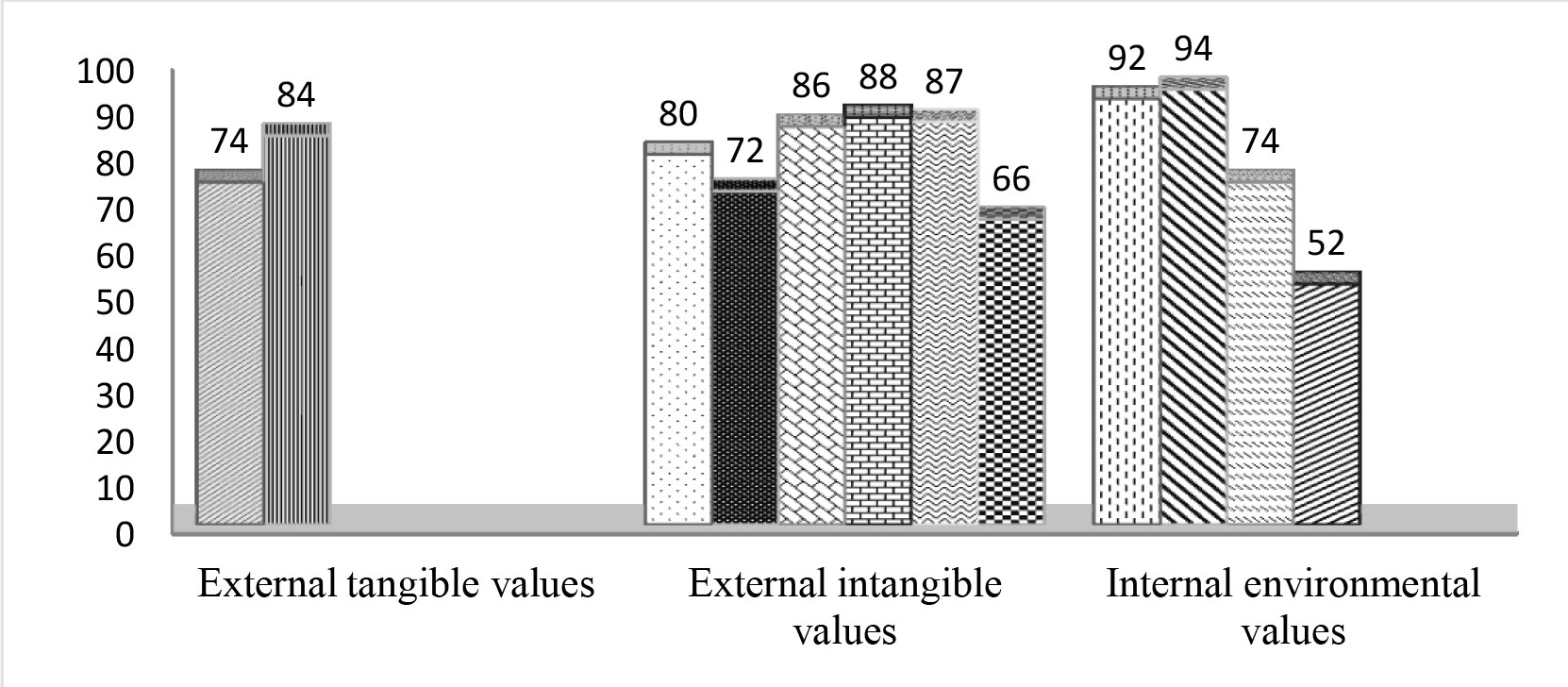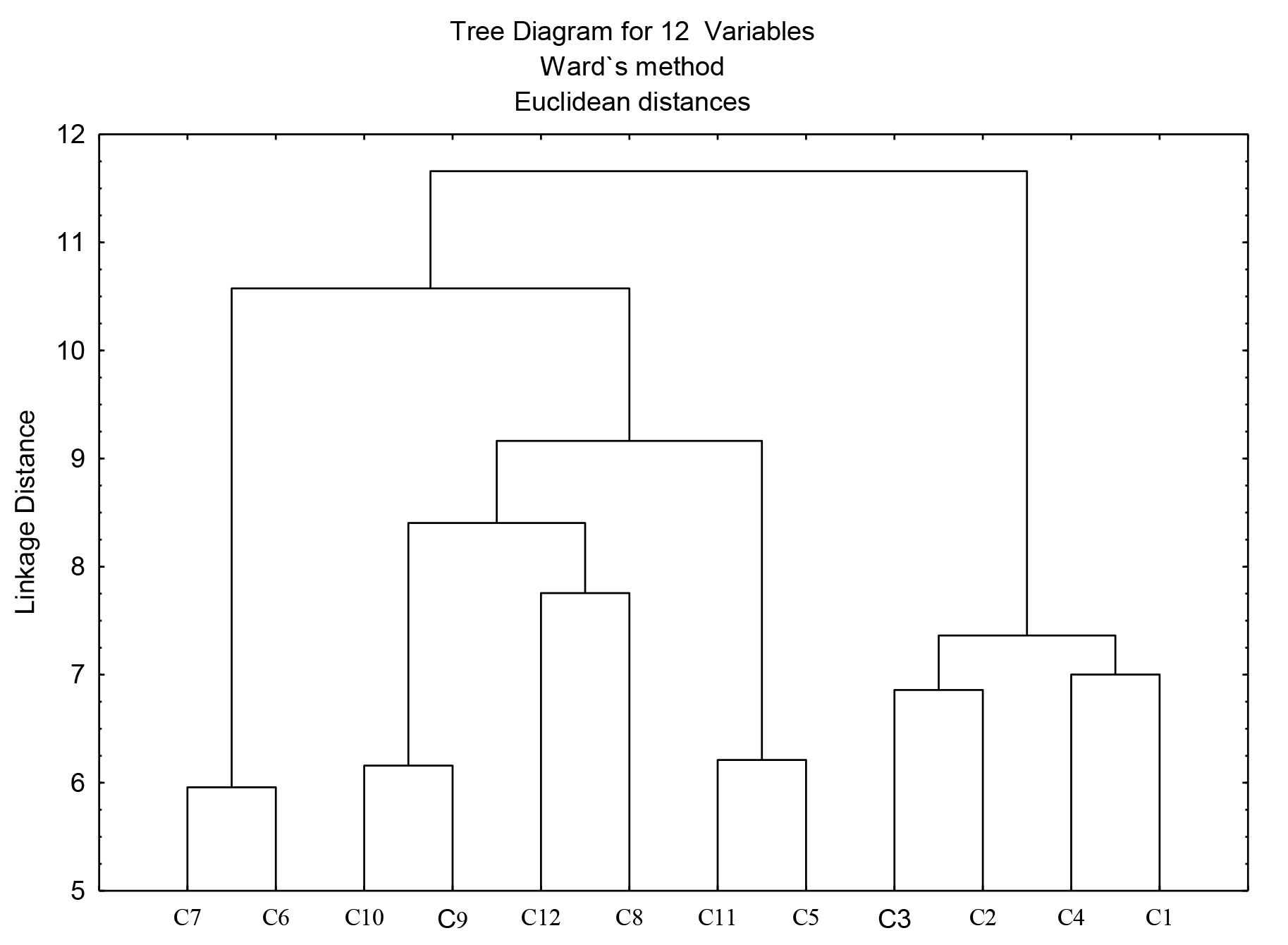Environmental values in globalization context viewed as world outlook component of physical education and sports department students
Фотографии:
ˑ:
PhD, Associate Professor E.A. Grineva1
Dr.Hab., Associate Professor M.M. Shubovich1
PhD N.V. Bibikova1
1Ulyanovsk State Pedagogical University named after V.I. Ulyanov, Ulyanovsk
Keywords: environment-sensitive world outlook, components of environment-sensitive world outlook, globalization, environment-sensitive education, classification of environmental values, students’ environmental values.
Background. Initiatives to cultivate an integrated environment-sensitive world outlook are considered among the key priorities of the programs to build a new environment-conscious society. The ongoing globalization process, however, results in the negative effects on environment being increased. Many environmental problems have become global as they affect a wide variety of aspects of relations of human societies with natural environments and are increasingly important both for international policies and for the future of mankind on the whole. It was in the late XX to early XXI century that studies of the ongoing globalization process have evolved into the leading global socio-cultural and humanitarian progress avenues [4]. A high priority in these developments has been given to the studies of the modern environment-sensitive world outlook viewed as an important integrative personality quality in the epoch of global transformations
Objective of the study was to provide theoretical grounds for the student environment-sensitive world outlook with its meaning and content in the globalization context; classify the ecological values forming a basis for the environment-sensitive world outlook; and identify the priority ecological values of the physical education and sports department students based on the classification.
Methods and structure of the study. Experimental survey works under the study were performed in the period of May to September 2017. Subject to the study were the physical education and sports department students (n=65) at Ulyanovsk State Pedagogical University named after I.N. Ulyanov. For the study purposes we applied a variety of both theoretical (data analysis, classification, systematizing and summarizing) and empirical (data ranging and Ward’s cluster analysis) methods.
Study results and discussion. The study provided theoretical grounds for the students’ environment-sensitive world outlook meaning and structure to be analyzed in the ongoing globalization context. The environment-sensitive world outlook essentially may be defined as the systemic individual vision providing a consistent interpretation of the objective world with due understanding of the genuine values of every matter, deep interrelations of the processes and phenomena, triune human-society-nature relationship, and role and place of humans in the surrounding world [5].
In the study context we have defined the environment-sensitive world outlook as the superior quality of an individual having consistent knowledge of the world, human place in it, potential and actual relations in the human-society-nature system and prepared for internally motivated actions based on the relevant views, ideas and beliefs. The consistent and systemic environment-sensitive world outlook includes cognitive, emotional-valuation and practice-centered components [1].
The cognitive component of the world outlook is interpreted as the ecological knowledge forming a basis for every environment-conscious activity, with due ecological knowledge being critical for understanding the essence of environmental ideal that considers the creative social activity as the process geared to change both the world and the internal human nature as required by the high ecological culture.
The emotional-valuation component implies the values-driven attitudes to natural environments. It is the ethical law that requires the natural environment on the one hand and human on the other hand being protected. It is important that every individual acknowledges the highest value of its own and other people’s existence with a human life being ranked among the top values. The emotional-valuation component of the environment-sensitive world outlook manifests itself in the following: contemplation ability; empathy to every living being; strive for self-perfection; compliance with the environmental protection provisions in the everyday activity; opposition to the disintegrative global processes; due learning motivations; and a healthy lifestyle.
The practice-centered component of the world outlook refers to the individual engagement in the interaction of human society with nature with such activity making a special emphasis on its compliance to the social requirements to the interaction and the relevant behavioral ethics. Environmental activity may be interpreted as the conscientious voluntary activity to attain some important social purpose so as to harmonize and improve some relations and interactions of the human society with nature; with the activity geared, among other things, to encourage the environmental and cognitive interests in students, expand and deepen their environmental knowledgebase and outlook and accumulate the relevant practical experience [3].
Environmental values may be defined as special controls of the individual and social attitudes to and relationship with natural environments. Since the environmental values regulate the human-nature interactions, they form a key component of a general cultural hierarchy of values to predetermine the systemic relationship of human society with nature and provide a measure for the social responsibility for the environmental situation and a harmonic balance in biosphere on the whole.
For the study purposes we applied an updated version of the V.Y. Boreiko typology of environmental values [2] that classifies the natural values into the following two basic types: external (instrumental) values of importance not only for nature but also for somebody else (including humans); and internal values important for nature as such but valueless for humans. The external values, in their turn, may be classified into tangible and intangible (aesthetic, ethical, religious, scientific etc.) ones.
Given on Figure 1 hereunder is the schematic typology of the environmental values.

Figure 1. Typology of the environmental values
Empirical questionnaire survey of students under the study was designed to range their preferred environmental values. The students were offered to range the key environmental values in the following list: (1) Nature as a source of tangible assets; (2) Nature as a recreation resource; (3) Natural environment quality protection; (4) Natural beauty; (5) Environmental safety; (6) Integrity and harmony of nature; (7) Co-evolution of nature and society; (8) Nature as a source for cognition; (9) Life as an absolute value; (10) Right for living; (11) Strive for harmony with nature; and (12) Nature perceived as a sacred/ divine universe. The students were required to score every environmental value by importance for them on a 100-point scale, followed by the resultant survey data being processed by the standard statistical methods to compute an average score for every value. Given on Figure 2 hereunder is the survey data analysis, with the columns representing ranks of the environmental values.

Figure 2. Environmental values ranked by the students’ questionnaire survey
The study found the hierarchy of external tangible environmental values dominated by the ‘Nature as a recreation resource’ scored by 84 points; the external intangible environmental values dominated by the ‘Integrity and harmony of nature’ scored by 88 points; and the internal environmental values dominated by the ‘Right for living’ scored by 94 points out of 100. The students were found to believe that life comprises the top value on the planet and the genuine right of every living being, with the unity and harmony of nature and society being viewed as the core element of life. Most of the students appreciate natural environments for their ability to heal and recover energy, with the people’s health and life viewed as largely dependent on the surrounding natural environments; conditional on the integrity and harmony of nature being respected and protected. Ranked the lowest in the students’ preferences were the following environmental values: ‘Nature as a source of tangible assets’, ‘Nature as a source of cognition’ and ‘Nature as a sacred/ divine universe’.
It may be summarized that the students clearly realize the following: need for every connection with nature being protected; integrity of nature; every living being’s right for life; and nature as a source of tangible and intangible/ spiritual values. They tend to overestimate the recreational values of the natural environment at the same time that may be due to the age- and vocation-related specifics of the sample – since their physical training, sporting and tourist practices largely predetermine their environmental views.
Furthermore we applied the Ward’s cluster analysis to identify clusters of similarly scored environmental values: see Figure 3.

Figure 3. Environmental values grouped by the Ward’s cluster analysis
Based on the cluster analyses, 12 values were grouped by the relevant similar features as given on Figure 1 above. It shows three classes of values, with every class determined by a single informative feature that gives inclusive information about the relevant class and locates close to the class center. For the study sample such features were С2, С6 and С10. Therefore, we obtained a three-dimensional space locating the informative features that later on may be applied to test and classify different study objects and rank different environmental values. These classes also give the means to test new students with their outlooks being profiled by the ranked environmental values. Potentially the test model makes it possible to run such tests on a time-efficient basis, survey large samples and receive more meaningful outcome data.
Conclusion. The theoretical analysis and survey under the study made it possible to explore the meaning and content of the students’ environment-sensitive world outlook in the globalization context; identify and consider the environment-sensitive world outlook components including the cognitive component (i.e. relevant environmental competency and knowledgebase); emotional-valuation component (i.e. attitudes to the natural environment); and the practice-centered component (that refers to the voluntary practical activity geared to solve environmental problems). We offer a basic classification of the environmental values grouped into external and internal ones and viewed as the core components of an individual world outlook. The empirical questionnaire survey under the study found the priority environmental values within the above classification for the physical education and sports department students. The study data show the need for a due system of environmental values being formed in academic communities as an integral component of the environment-sensitive world outlooks.
The study was supported by the RDNF grant financing under Project #16-16-73002а
References
- Bibikova N.V., Grineva E.A. Formirovanie ekologicheskogo mirovozzreniya obuchayuschikhsya v obrazovatelnom protsesse: diagnosticheskiy aspekt [Formation of students’ environment-sensitive world outlook within educational process: diagnostic aspect]. Uspekhi sovremennoy nauki i obrazovaniya, 2017, no. 2 (1), pp. 9-13.
- Boreyko V.E. Proryv v ekologicheskuyu etiku [Breakthrough in environmental ethics]. Kiev: Kiev Ecological and Cultural Center, Logos publ., 2013,168 p.
- Grineva E.A., Bibikova N.V., Davletshina L.Kh. et al Pedagogicheskoe proektirovanie: sotsialno-ekologicheskiy aspekt. Uchebno-metod. posobie [Pedagogical design: socio-ecological aspect. Study guide]. Ulyanovsk: USPU publ., 2016, 84 p.
- Ilyin I.V., Los V.A., Ursul A.D. Ustoychivoe razvitie i globalnye protsessy. Uchebnik [Sustainable development and global processes. Textbook]. Moscow: MU publ., 2015, 445 p.
- Levchenko N.V. Formirovanie ekologicheski orientirovannogo mirovozzreniya v sisteme obrazovaniya: teoreticheskie podkhody [Formation of environment-sensitive world outlook in educational system: theoretical approaches]. Integratsiya obrazovaniya, 2016, no. 3, pp. 364-373.
Corresponding author: eliz.grin9@yandex.ru
Abstract
The study considers components of the integrated environment-sensitive world outlook including the cognitive, emotional-valuation and practice-centered components; and offers a classification of the environmental values in the modern globalization context. Objective of an empirical questionnaire survey under the study was to profile the priority environmental values of the physical education and sports department students (n=65) at Ulyanovsk State Pedagogical University named after I.N. Ulyanov. A data ranging method and Ward’s cluster analysis were applied for the purposes of the study. The study found the priority environmental values that constitute the core of the modern environment-sensitive world outlook. The study data show benefits of the environmental values building education as a key part of the environment-sensitive world outlook formation process. The cluster analysis may be applied to identify, test, classify and model the environmental values building process in an academic educational process.



